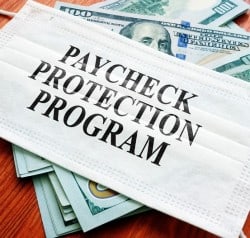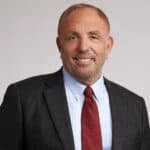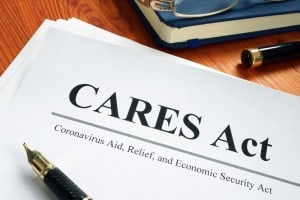BLUF – Faith-based organizations are eligible to participate in PPP/EIDL with no infringement on their ability to exercise their religion.
INTRODUCTION
As the Small Business Administration (SBA) and the Department of the Treasury continue to roll out additional guidance on the emergency relief programs available under the Coronavirus Aid, Relief, and Economic Security Act (CARES Act), guidance is still being finalized. Ambitious in scope, many of the programs are open to nonprofits and faith-based organizations, which are traditionally ineligible to receive SBA loans.
On April 4, SBA issued guidance to help clear up some of the confusion among faith-based organizations (FBOs). Although the guidance is in the form of FAQs, and therefore does not have the same force of law as final regulations, they nevertheless express a strong intention by the SBA to allow faith-based organizations to participate in the relief programs while preserving religious liberty protections.
DISCUSSION
The SBA guidance clarifies that FBOs are eligible to participate in the Paycheck Protection Program (PPP) and the Economic Injury Disaster Loan Program (EIDL), as long as they meet the generally-applicable eligibility criteria. The SBA clarified that the rules governing how FBOs could use funds received under PPP and EIDL were the same as those rules applicable to all other recipients.
The FAQs explain how the SBA will balance religious freedom and existing SBA rules prohibiting discrimination. The SBA made clear that FBOs will not sacrifice their autonomy or First Amendment rights by receiving a loan under either program, but also emphasized that FBOs are still prohibited from discriminating “on the basis of race, color, religion, sex, handicap, age, or national origin with regard to goods, services, or accommodations offered.”
SBA’s nondiscrimination rules apply with respect to goods, services, or accommodations offered generally to the public by FBOs (such as an FBO-operated restaurant or thrift store open to the public), but not to the FBO’s ministry activity within its own faith community. The SBA also clarified that the nondiscrimination requirements do not limit an FBO’s autonomy with respect to membership or employment decisions connected to its religious exercise.
CONCLUSION
While the SBA guidance should provide assurance to FBOs that they can accept funds under the PPP and EIDL without sacrificing their autonomy or religious freedom, FBOs should nevertheless confer with legal counsel on any specific questions regarding its applicability to the organization’s activities.
- Perlman & Perlmanhttps://perlmanandperlman.com/author/nancyisrael/
- Perlman & Perlmanhttps://perlmanandperlman.com/author/nancyisrael/
- Perlman & Perlmanhttps://perlmanandperlman.com/author/nancyisrael/
- Perlman & Perlmanhttps://perlmanandperlman.com/author/nancyisrael/










